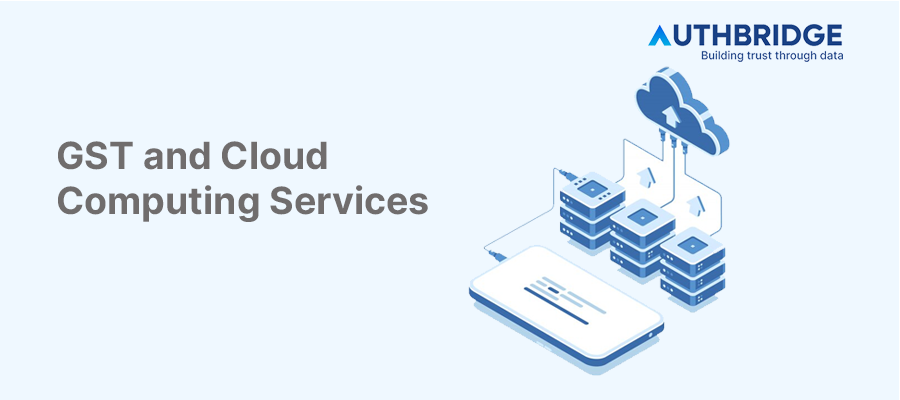Demystifying GST For Cloud Computing In India: A Guide To Rates, ITC & Compliance

The Goods and Services Tax (GST) in India has significantly impacted the digital economy, bringing cloud computing, streaming services, and other online services under its ambit. With a standard GST rate of 18% for digital services, including cloud computing, the tax reform aims to streamline taxation across the digital domain, ensuring fairness and transparency.
Overview of GST on Digital Services
GST on digital services, also known as Online Information Database Access and Retrieval (OIDAR) services, encompasses a wide range of services delivered through the internet or an electronic network. The introduction of GST has standardized the tax rate and compliance requirements for these services across India.
Definition and Scope of OIDAR Services
OIDAR services include cloud computing, digital content downloads, streaming services, and online data storage. Under GST, these services are taxed at 18%, with specific compliance mechanisms in place for both domestic and international service providers.
GST on Cloud Computing Services
Cloud computing services, offering Software as a Service (SaaS), Platform as a Service (PaaS), and Infrastructure as a Service (IaaS), are subject to an 18% GST rate. This uniform tax rate aims to simplify the taxation process for service providers and users alike.
GST Rate for Cloud Computing Services
The GST rate for cloud computing and similar digital services is set at 18%, aligning with the broader digital services category under OIDAR. This rate applies to various cloud service models, including public, private, and hybrid clouds.
Place of Supply for Cloud Services
The place of supply for cloud services is determined based on the location of the recipient of services. For cross-border transactions, the place of supply is considered to be the location of the service recipient, affecting how GST is applied and collected.
Compliance and Taxation for Cloud Services under GST
Compliance with GST for cloud services involves understanding the reverse charge mechanism, input tax credit eligibility, and the place of supply rules, especially for services crossing international borders.
Reverse Charge Mechanism (RCM) for International Providers
International cloud service providers without a physical presence in India are subject to the reverse charge mechanism, where the recipient of services in India is responsible for paying GST.
Input Tax Credit (ITC) for Cloud Services
Businesses availing cloud services can claim input tax credit for the GST paid, provided the services are used for business purposes. This provision helps in offsetting the GST liability against the tax paid on inputs.
Place of Supply Rules for Digital Services
Determining the place of supply is crucial for applying the correct GST rate and ensuring compliance, particularly for services provided across borders.
Determining the Place of Supply
For digital services, the place of supply is typically the location of the recipient. This rule ensures that GST is levied based on the consumption location of the service.
Implications for Cross-Border Services
Cross-border digital services, including cloud computing, face unique challenges in determining the place of supply and complying with GST regulations. Service providers must navigate these rules to ensure proper taxation and avoid penalties.
Taxation of Other Digital Services under GST
Apart from cloud computing, GST impacts a range of digital services, including streaming services and OIDAR services, standardizing the tax treatment across the digital economy.
Streaming Services
Streaming services for music, videos, and other digital content are taxed at the standard OIDAR rate of 18% under GST. This includes both domestic and international streaming platforms operating in India.
Online Information and Database Access or Retrieval (OIDAR) Services
OIDAR services, encompassing a broad category of digital services, are subject to GST at 18%. This includes services like online advertising, web hosting, and digital content subscriptions.
Challenges and Solutions for GST Compliance
Complying with GST for digital services presents challenges, particularly for international service providers and businesses availing cross-border services.
Common Compliance Challenges
Challenges include understanding the reverse charge mechanism, determining the place of supply, and ensuring accurate GST filings. International service providers must navigate these complexities to operate in the Indian market.
Best Practices for Ensuring GST Compliance
Adopting best practices, such as staying updated on GST regulations, leveraging technology for compliance, and consulting with tax experts, can help businesses navigate GST requirements effectively.
Future Outlook on GST for Digital Services
The GST framework for digital services is evolving, with potential changes and updates expected to address emerging challenges and adapt to the digital economy's growth.
Potential Changes and Updates
Future updates to GST for digital services may include clarifications on compliance requirements, adjustments to tax rates, and simplifications of the reverse charge mechanism for international transactions.
Impact on the Digital Economy
The continued evolution of GST regulations for digital services will play a crucial role in shaping India's digital economy, influencing how businesses operate and grow in the digital domain.
Category

Abhinandan Banerjee
(Associate Manager - Marketing)
Abhinandan is a dynamic Product and Content Marketer, boasting over seven years of experience in crafting impactful marketing strategies across diverse environments. Known for his strategic insights, he propels digital growth and boosts brand visibility by transforming complex ideas into compelling content that inspires action.



